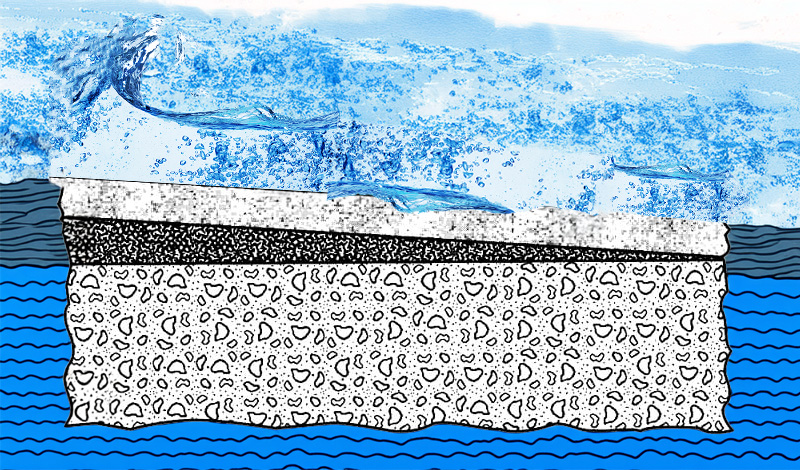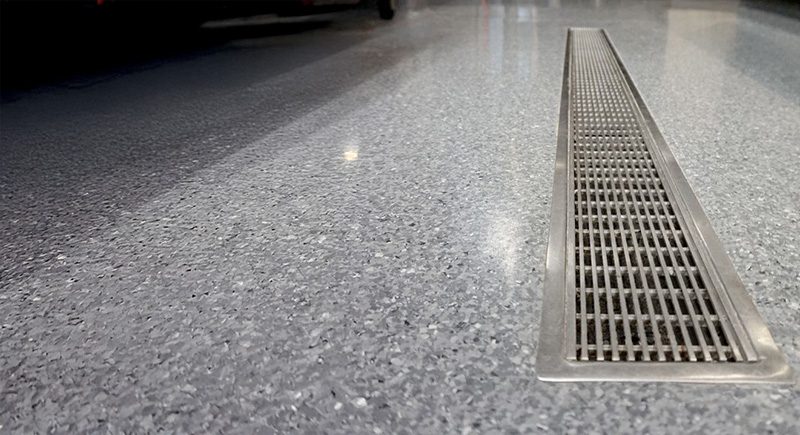Self Draining Floors in Food and Beverage Facilities
In food and beverage production, flooring is often an overlooked but crucial aspect of facility design. Self-draining floors are vital in ensuring hygiene, safety, and efficiency. Here, we will explore self draining floors and highlight the benefits of using materials like polyurethane cement and epoxy flooring.
Understanding Self Draining Floors
Self draining floors are designed with a slight slope that directs water and other liquids towards drains, preventing puddles and standing water. This design is essential in environments where spills are frequent, such as food and beverage facilities.
Why use Self Draining Floors
Hygiene and Sanitation
Maintaining cleanliness is critical in food and beverage facilities to prevent contamination and ensure product safety. Self-draining floors help by quickly removing liquids, reducing the risk of bacterial growth and making cleaning processes more efficient. Read about HACCP and hygienic floors.
Safety
Wet floors can be hazardous, leading to slips and falls. Self-draining floors minimise this risk by ensuring that liquids are promptly drained away, keeping the walking surfaces dry and safe for employees. Explore the safety benefits of proper flooring.
Efficiency
Time is money in any production environment. Self-draining floors reduce the time and effort required for cleaning, allowing staff to focus on more critical tasks. This efficiency can lead to increased productivity and lower operational costs. Discover efficient flooring solutions.
Types of Flooring Materials
Polyurethane Cement
Polyurethane cement is a popular choice for self draining floors in food and beverage facilities due to its durability and chemical resistance. It can withstand harsh cleaning agents and high temperatures, making it ideal for environments that require rigorous sanitation standards. Learn more about polyurethane cement flooring.
Epoxy Flooring
Epoxy flooring is another excellent option, known for its strong adhesion and ease of cleaning. It provides a seamless, non-porous surface that resists stains and is easy to maintain. Epoxy floors are also highly customisable, allowing facilities to choose from various colours and finishes. Discover some of the benefits of epoxy flooring.
Regulatory Compliance
Food and beverage facilities must adhere to strict health and safety regulations. Self-draining floors can help meet these standards by ensuring the facility remains clean and safe. Regulations often specify proper drainage systems to prevent contamination and accidents. Read about regulatory compliance for flooring.
Case Studies
Many facilities have successfully implemented self-draining floors and reaped the benefits. For instance, after installing self-draining polyurethane cement floors, a large dairy processing plant reported significantly reduced cleaning time and improved overall hygiene. Similarly, a brewery noted fewer slip-and-fall incidents and enhanced safety with epoxy flooring. Read more about the benefits of polyurethane cement and explore epoxy flooring options.
Conclusion
Self-draining floors are essential to food and beverage facilities, contributing to hygiene, safety, and efficiency. Facilities can ensure they meet regulatory standards and maintain a productive environment by installing polyurethane cement and epoxy floors. Consider upgrading your facility’s flooring to these self draining options to experience these benefits firsthand. Contact Diamond Grind for more information and assistance.

✅ Contact Diamond Grind
by Email or 1800 587 172
for an obligation FREE consultation.
